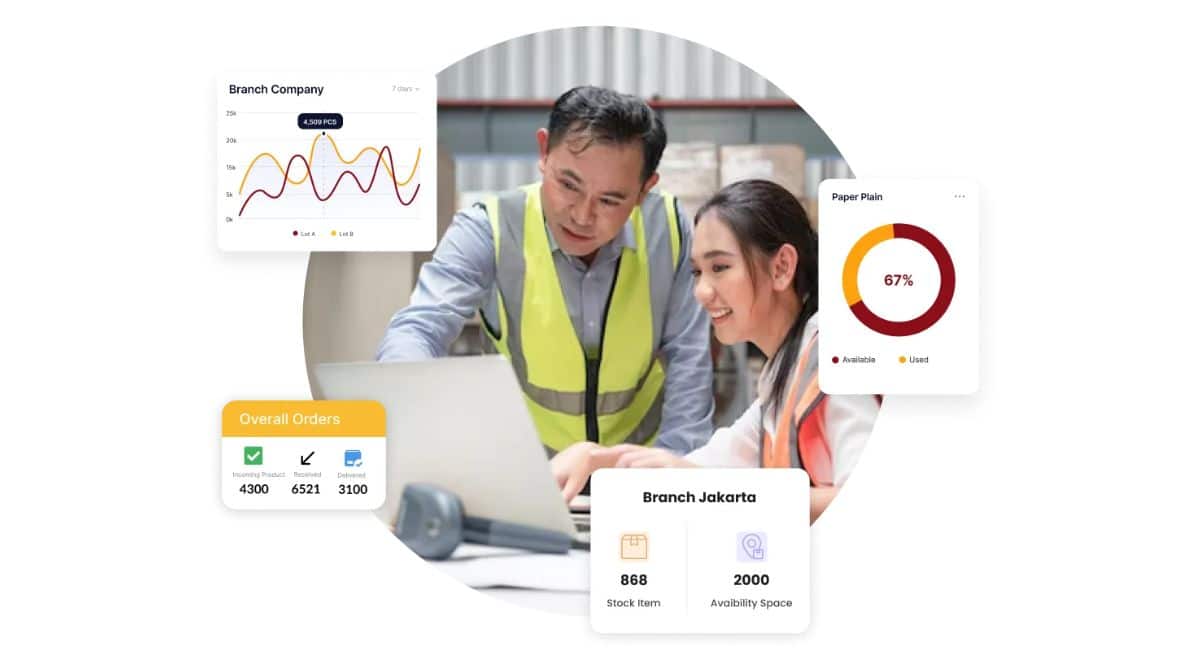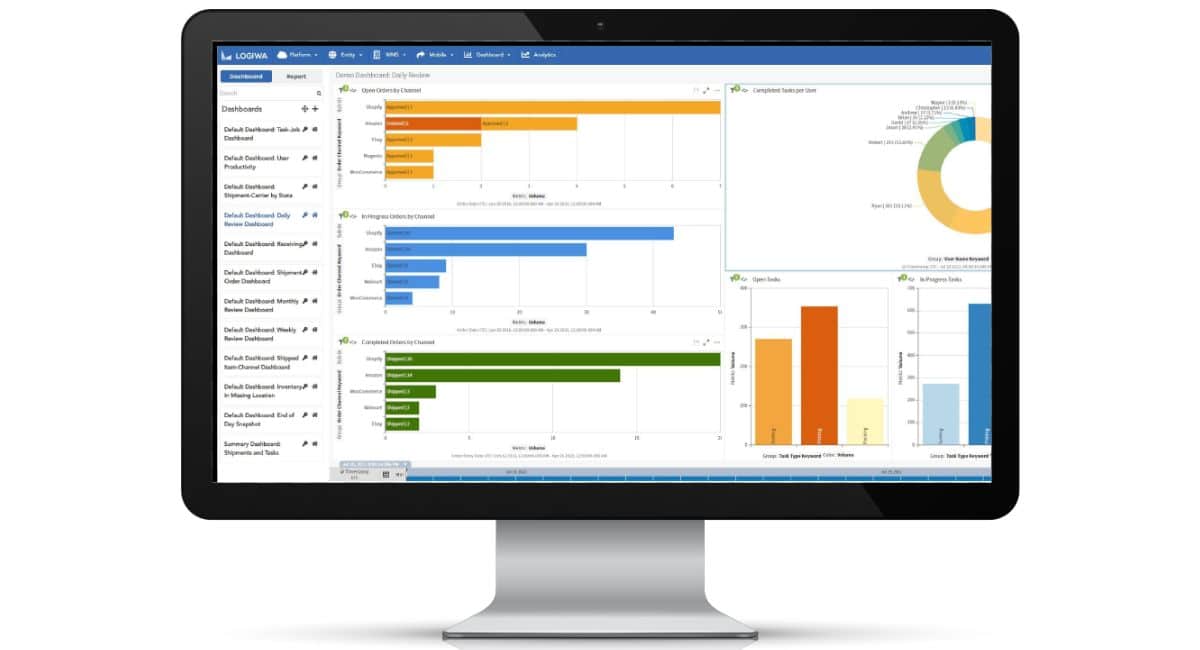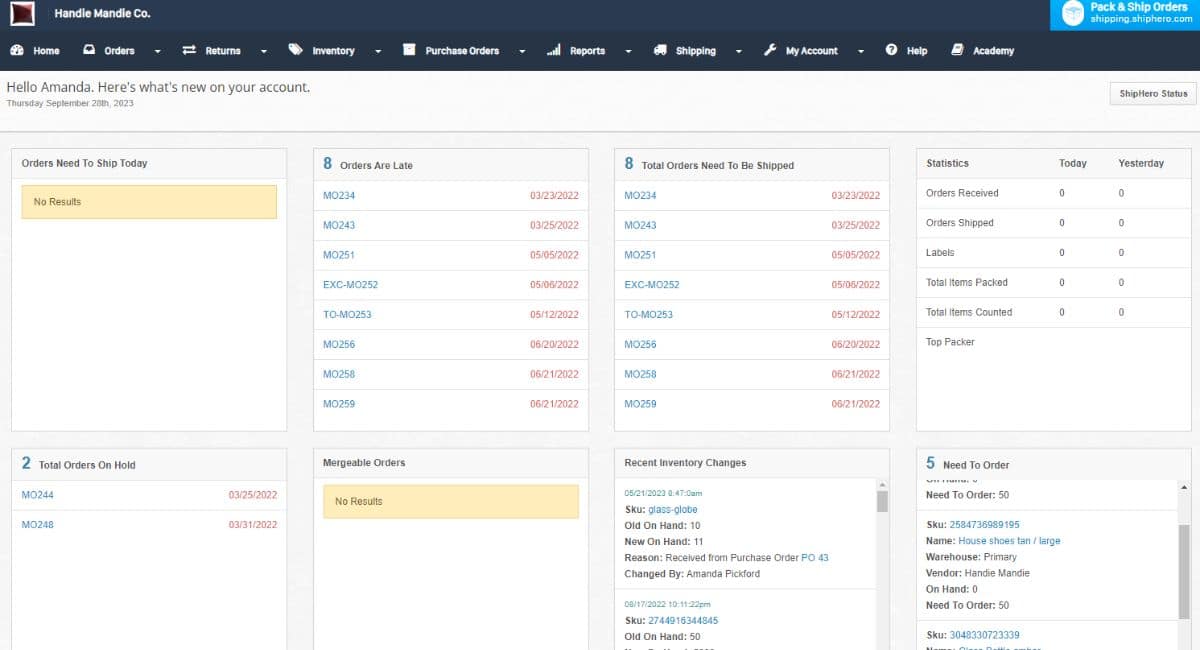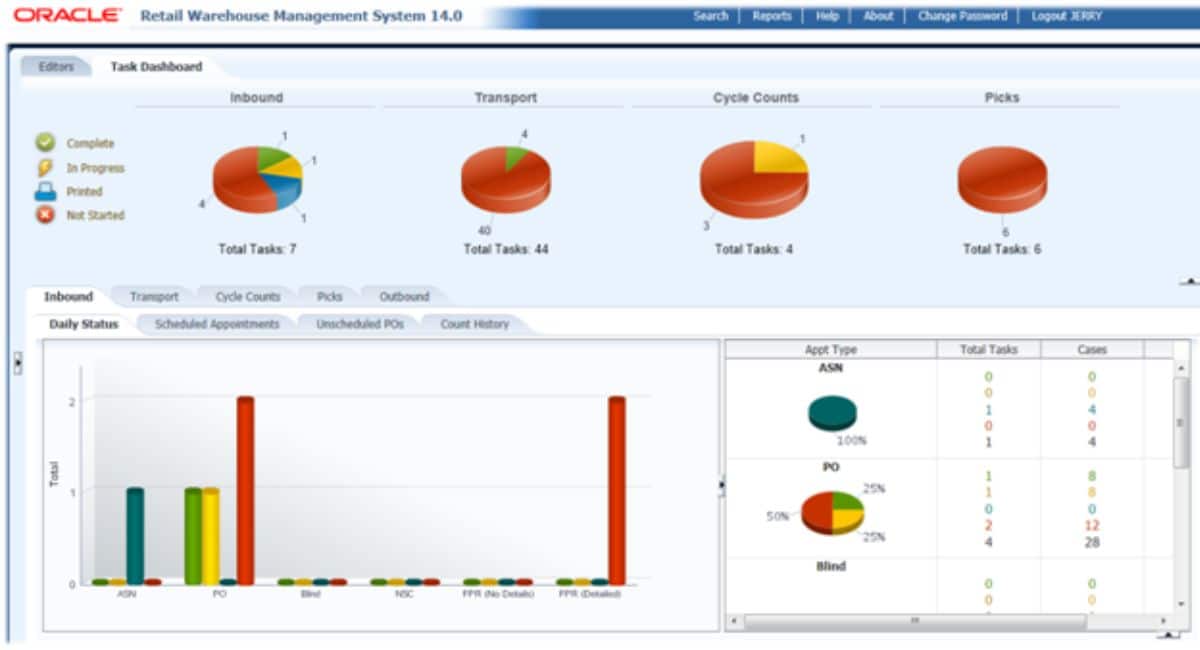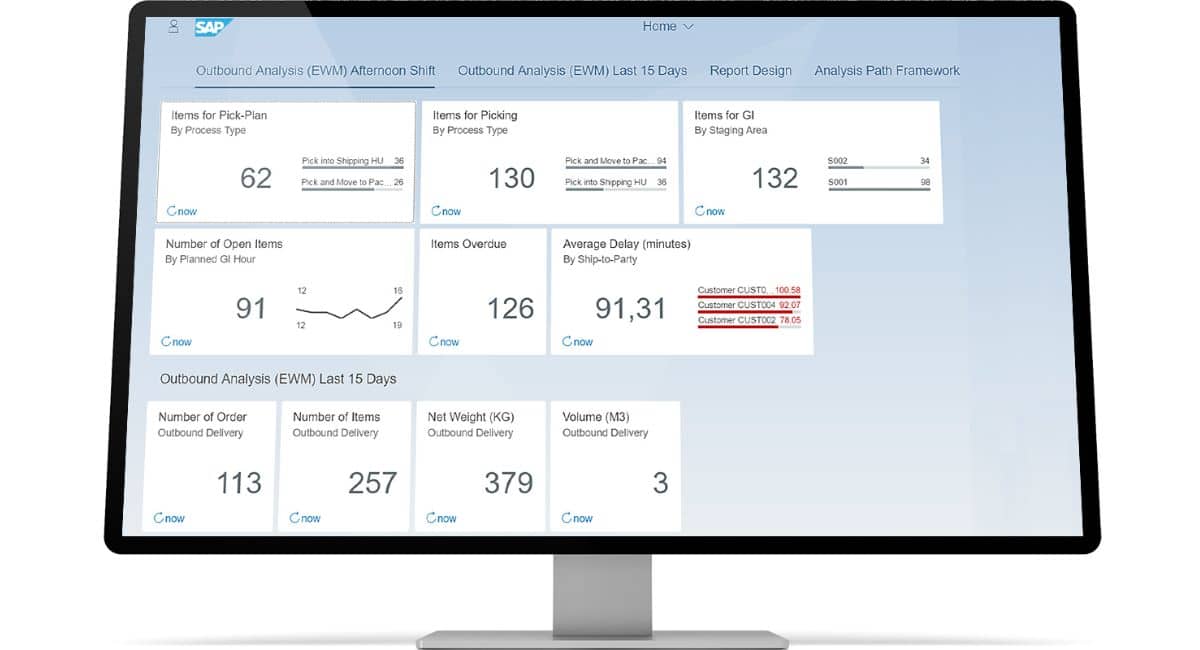In Singapore’s fast-paced business landscape, efficient warehouse management is crucial for companies to stay competitive. With the rise of e-commerce and the increasing demand for rapid order fulfillment, having a reliable and advanced warehouse management software (WMS) is no longer a luxury, but a necessity.
But with so many options available on the market, it can be overwhelming to determine what is the most popular WMS or which vendor company offers the best solution. Additionally, the emergence of Software-as-a-Service (SaaS) WMS software has revolutionized the industry, providing businesses with flexible and affordable options.
Looking for an efficient way to manage your warehouse? Start with HashMicro Warehouse Management System, trusted by businesses in Singapore for its reliability and flexibility. Discover how it can enhance your operations or keep reading as we will explore the best WMS solutions in 2025!
Key Takeaways
|
Top 5 Warehouse Management Systems in Singapore
- HashMicro: Best overall for real-time tracking, automated workflows, and seamless integration with accounting, purchasing, and inventory management. Ideal for businesses of all sizes looking for an ERP-integrated warehouse solution.
- Logiwa: Best for multi-channel fulfillment, providing real-time inventory visibility and seamless integrations for e-commerce businesses and 3PL warehouses.
- ShipHero: Best for e-commerce and retail fulfillment, specializing in shipping process automation and optimizing warehouse picking and packing operations..
- NetSuite WMS: Best for ERP-based warehouse management, integrating inventory tracking, barcode scanning, and order processing within NetSuite’s cloud ERP system.
- Oracle: Best for enterprise-level warehouse management, offering omnichannel fulfillment, automated workflows, and AI-driven inventory insights.

Table of Content:
Table of Content
What is Warehouse Management Software?
In the fast-paced world of modern business, warehouse management software (WMS) stands as a critical tool, creating a realm of seamless, automated, and efficient warehouse management.
The best WMS solutions offer advanced features, including real-time inventory tracking and barcode scanning, and are increasingly adopting Software-as-a-Service (SaaS) solutions for enhanced accessibility and cost-effectiveness.

What is the SaaS WMS software?
Exploring the Advantages of Warehouse Management Software
Warehouse management software have revolutionized the way warehouses operate. These systems offer numerous benefits that cater to the intricate demands of modern warehousing, such as:
- Enhanced Inventory Visibility
- Improved Order Accuracy
- Efficient Resource Utilization
- Scalability and Flexibility
- Compliance and Reporting
For more details about what warehouse management software is and its features and benefits, read here!
What to Look For in Warehouse Management Software
Selecting the right WMS is crucial for warehouse optimization. When scouting for warehouse management software, consider the following aspects:
- Inventory Tracking Requirements: Consider specific requirements related to inventory tracking and ensure the WMS can meet your needs in this crucial aspect of warehouse management.
- Integration Capability: A good WMS should seamlessly integrate with your existing systems, be it ERP, SCM, or accounting software.
- User-Friendliness: The system should be intuitive and easy to use, minimizing the learning curve for your team.
- Customization and Scalability: The software should be customizable to fit your specific business needs and scalable to grow with your business.
- Reliability and Support: Look for a system backed by robust customer support and a track record of reliability. Ask the salespeople for accurate estimates of time and costs required to fill identified functionality gaps.
Comprehensive Review of the Best Warehouse Management Software in Singapore 2025
One of the most frequently asked questions is, “Which company has the best warehouse management system?” Several market leaders are dominating the industry, each offering unique features and functionalities. These vendor companies have a proven track record and a wide range of solutions designed to meet the needs of various businesses in Singapore, from large enterprises to small and medium-sized enterprises (SMEs).
To further enhance efficiency, many of these systems integrate barcode tracking software, allowing businesses to track inventory with greater accuracy and reduce human errors in warehouse operations.
1. HashMicro
HashMicro’s Warehouse Management System is highly regarded for its robust functionality and seamless integration capabilities, catering to 1750+ clients of diverse industries, such as the Bank of China, Forbes Asia, Singapore’s Ministry of Education, and more.
With an intuitive interface and powerful features, it efficiently optimizes warehouse operations. The system is designed to enhance the utilization of warehouse space by automating the calculation and tracking of capacity. There are also features for inventory management optimization. With them, you can track inventory levels and generate detailed reports automatically.
You can opt for a free demo here before deciding to invest in HashMicro’s system solutions.
Features and Advantages:
- Optimized Multi-Warehouse Efficiency: Manages layout and capacity of multiple warehouses concurrently through a unified system, crucial for businesses with diverse storage needs.
- Faster Goods Retrieval: Systematic placement and recording of goods for quicker and more efficient retrieval, enhancing overall operational speed.
- Maximized Usage of Space: Automated measurements of product and rack dimensions to maximize warehouse space, addressing the premium on space in Singapore.
- Reduced Storage Costs: Accurate warehouse capacity calculation to avoid wasteful use of shelves or warehouse space, aligning with cost-saving priorities.
- Seamless Integration: Integration with the Purchasing System for budget planning, procurement control, and supplier management, streamlining financial processes.
- Financial Forecasting Support: Integration with the Accounting System to assist in inventory valuation and financial forecasting, providing strategic insights for business planning.
| Pros | Cons |
| ✓ Streamlined warehouse operations ✓ Has inventory management features ✓ Highly customizable to suit different business needs. ✓ User-friendly interface for ease of use. ✓ Flexible and adaptable solution ✓ Unlimited user capacity ✓ Committed sales and customer support team ✓ Supported by the Singapore government grants (EDG up to 50% and NTUC CTC Grant up to 70%) |
× Long waiting list for the free demo registration × Possible learning curve |
For the pricing scheme of HashMicro’s Warehouse Management System, click the image below!
2. Logiwa
Logiwa Warehouse Management System (WMS) is a comprehensive software platform designed to optimize warehouse operations, providing real-time inventory visibility and control.
Tailored for warehouses of various sizes, Logiwa WMS has a user-friendly interface, configurability, and seamless integration with e-commerce, shipping, and other solutions. It facilitates onboarding, automates key processes, and offers scalability to adapt to changing business needs.
Features and Advantages:
- Inventory Visibility and Control: Provides access to accurate inventory data, allowing for monitoring and control.
- Complete Configurability: Enables tailoring to meet the needs of your warehouse, ensuring a seamless fit with existing systems.
- Easy Onboarding: Simplifies the onboarding process, reducing the time required to implement and saving on service fees.
- Scalable and Adaptable: Ensures it can grow with your business, accommodating changing order volumes and operational requirements.
- Mobile App: Offers a mobile app for remote monitoring and control, providing flexibility and convenience.
| Pros | Cons |
| ✓ Operational efficiency ✓ High configurability ✓ User-friendly design ✓ Scalability ✓ Mobile app |
× Initial learning curve × Dependence on technology × Ongoing adjustments × Relatively high cost of implementation and subscription fees |
3. ShipHero
ShipHero is a Warehouse Management Software (WMS) designed to cater to the needs of e-commerce and retail businesses seeking efficient shipping processes and enhanced inventory management. This software facilitates seamless integration, allowing businesses to streamline their operations.
Its primary focus lies in optimizing tasks such as picking, packing, and shipping, providing tools like a picking plan to increase the efficiency of these processes.
Features and Advantages:
- Integration: Facilitates quick and easy integration into existing systems, reducing setup time.
- Inventory and order management: Offers comprehensive tools for efficiently managing inventory and processing orders.
- Support: Provides continuous support, ensuring businesses have assistance whenever needed.
- Automation rules: Allows users to set up automation rules, enhancing the efficiency of various processes such as order fulfillment.
| Pros | Cons |
| ✓ Integration capabilities ✓ Optimized operations ✓ Continuous support |
× Possible significant investment for smaller businesses × Specific industry focus × Complexity |
3. Netsuite WMS
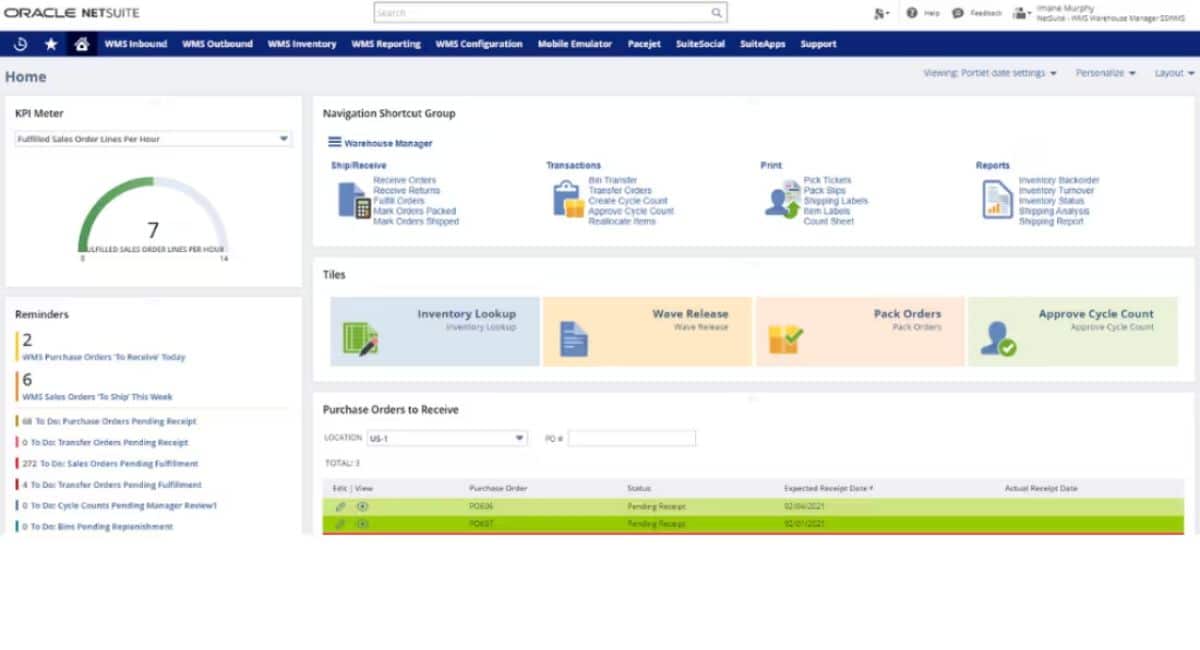
In general, implementing NetSuite WMS eliminates outdated pen-and-paper warehouse management practices, ushering in a more contemporary approach to enhance productivity, cost savings, and overall customer service. It ensures that changes in inventory information or status are promptly updated across all integrated warehouse systems, creating a cohesive and synchronized environment.
Features and Advantages:
- Mobile RF Barcode Scanning: Enables efficient stock management using regular mobile devices.
- Putaway and Picking Automation: Facilitates automated execution of putaway and picking plans.
- Inventory Visibility: Provides real-time visibility into inventory information and status.
- Storage Space Optimization: Optimizes storage space by implementing effective warehouse strategies.
| Pros | Cons |
| ✓ Enhanced productivity ✓ Real-time updates ✓ Improved customer service |
× Annual licensing fee × Custom pricing quote requirement |
4. Oracle Fusion Cloud Warehouse Management
Oracle Fusion Cloud Warehouse Management is a comprehensive software solution that enables users to centralize control and connectivity across warehouse operations. By doing so, businesses gain complete visibility into their warehouse processes, enhancing overall efficiency and management.
Embracing Oracle Fusion Cloud Warehouse Management comes with both advantages and drawbacks. On the positive side, the software excels in providing omnichannel fulfillment support, optimizing inventory operations, and facilitating integration and automation. However, a potential downside lies in the lack of transparent pricing on the website, requiring prospective users to engage with sales for customized information.
Features and Advantages:
- Omnichannel Fulfillment Support: Enhances adaptability to diverse fulfillment requirements.
- Inventory Operations Optimization: Streamlines warehouse processes for improved efficiency.
- Integration and Automation: Facilitates integration with various warehouse systems.
- Scalability: Adaptable to evolving warehouse needs, ensuring long-term suitability.
- Centralized Control: Provides a single-system view for comprehensive warehouse management.
| Pros | Cons |
| ✓ Optimized inventory operations ✓ Integration and automation capabilities ✓ Scalability ✓ Visibility |
× Customized pricing × Limited information accessibility × Implementation complexity × Potential learning curve |
5. SAP Extended Warehouse Management
SAP Extended Warehouse Management (SAP EWM) is a comprehensive software solution designed for businesses seeking to scale their warehouse operations, accommodating increased order volumes efficiently. The software offers the flexibility of both on-premise and cloud deployment, providing automation control, supply chain management, and effective oversight of storage and internal processes.
Features and Advantages:
- On-premise and Cloud Deployment: Provides the option for both on-premise and cloud deployment, offering flexibility in choosing a solution that aligns with business needs.
- Automation Control: Facilitates automation control, streamlining warehouse processes and enhancing operational efficiency.
- Supply Chain Management: Enables businesses to monitor and manage their entire supply chain seamlessly.
- Storage and Internal Process Control: Allows for effective control over storage and internal processes, ensuring optimized warehouse operations.
| Pros | Cons |
| ✓ Scalability ✓ Real-time insights ✓ Deployment flexibility |
× Limited pricing transparency × Steep learning curve |
Conclusion
The landscape of warehouse management is ever-evolving, and the right Warehouse Management Software is a pivotal tool in navigating this dynamic terrain. From HashMicro’s versatile system to Logiwa’s e-commerce-focused solution, each WMS offers unique benefits tailored to different business needs.
In 2025, as businesses in Singapore and globally strive for efficiency and accuracy in their warehousing operations, the choice of WMS becomes more critical than ever. It’s not just about managing inventory; it’s about empowering your entire supply chain to be more responsive, agile, and customer-focused.
Choosing the right Warehouse Management Software is a strategic decision that can significantly impact your business’s efficiency and productivity. In 2025, many available WMS solutions, such as HashMicro’s Warehouse Management System, offer a variety of features and benefits, catering to the diverse needs of businesses in Singapore and beyond.For detailed information, click the image below.

The key is to assess your specific warehouse management needs and select a solution that aligns with your business goals, scales with your growth, and integrates seamlessly with your existing systems. The right system like HashMicro’s Warehouse Management Software can transform your warehouse into a hub of efficiency, accuracy, and productivity, driving your business towards greater success in the competitive market.
Frequently Asked Questions About Warehouse Management Software
-
What is the primary function of Warehouse Management Software?
WMS primarily helps in optimizing the various operations within a warehouse, including inventory tracking, order processing, and resource management.
-
Can WMS integrate with other business systems?
Yes, most modern WMS solutions offer robust integration capabilities with various business systems like ERP, SCM, and CRM.
-
Is Warehouse Management Software suitable for small businesses?
Absolutely. Many WMS solutions are scalable and can be tailored to the needs of small businesses, offering them the efficiency and accuracy needed for growth.
-
What are the cost implications of implementing a WMS?
The cost varies based on the scale of operations and the specific features required. However, the long-term benefits often outweigh the initial investment through increased efficiency and reduced errors.
-
Is cloud-based WMS more advantageous than on-premise solutions?
Cloud-based WMS offers advantages like flexibility, scalability, and lower upfront costs, making it a preferable option for many businesses.





